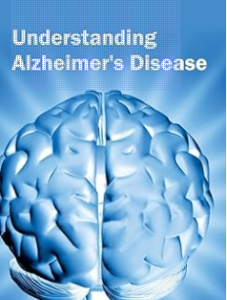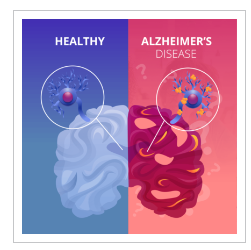Understanding Alzheimer’s Disease
Alzheimer’s Disease (AD) is the most prevalent form of dementia, accounting for approximately 60-80% of all dementia cases and is a neurodegenerative disorder that worsens with time. Alzheimer’s is a social and economic burden across the globe, and one of the most debilitating aspects of this disease is brain cell death. The aim of this review is to provide the readers with descriptive details on how Alzheimer’s Disease develops, to facilitate understanding, like how important is it not only to patients but also to caregivers and the society at large. This review attempts to achieve its goal by exploring the history of Alzheimer’s Disease, its characteristics, epidemiology, practice guidelines, advantages, and disadvantages, and answering synthesized questions.

A general overview of Alzheimer’s disease
Like every disease, Alzheimer’s Disease has its own characteristics that set it apart from the rest and here are some of them:
Clinical Description
Losing functional memory when Alzheimer’s is brought on by loss of neurons containing acetyltransferase in basal forebrain which makes people afflicted with AD unable to form new memories. This deficit leads to progressively worse outcomes with even basic tasks and until the brain has completely been ruined where sufferers attain a vegetative state, they would experience bouts of excessive agitation, inflexibility, denial of illness, numerous vague complaints of pain alongside deterioration of social or family relationships and disorientation.
Emotional effects: As the disease worsens, the severe stage causes visible changes in the biological psyche where people afflicted usually show hostility, aggression, and heightened hypervigilance which often leads to difficult conditions such as psychosis. Many socio-cultural factors do play a vital role in the development of the disease.
Physical degradation: Alzheimer’s is a terminal illness which inevitably leads to hospice-like conditions where the afflicted loses almost all he or she was, The only objective left is to manage motion sickness along with minimizing further deterioration of the body.
Differences
Dementia is often mistaken with heckling patients regarding undue losses, but neurobiological research shows insults to disulfide bonds, phosphoserine signaling and polarization of microtubules leads to rapid and accelerated cell degradation which is often irreversible and resulting in worse fates. In most cases, confusing Alzheimer’s with other neurodegenerative diseases could lead to death.
Brain Atrophy: Reduction in the size of brain structures, primarily those regions linked with memory.
Social Aspects
The most obvious impact would be upon the families and caregivers where a lot of emotional and financial stress might be experienced.
Awareness and Education: There is a need to raise awareness about Alzheimer’s that would help in diagnosing the problem at early stages.
Specialist of understanding the causative factors of Alzheimer’s Disease
The condition of Alzheimer’s Disease can be examined from various dimensions namely neurology, psychology and social work. Some of the main specialties are:
Neurology
Neurologists are qualified medical doctors, trained in diagnosing and managing various disorders and disease processes such as Alzheimer’s. The latter includes clinical evaluation oncology and imaging techniques that will indicate how damaged tissue is.
Geriatrics
Geriatric medicine specialists’ concern with elderly patients’ health maintenance and management and include those with Alzheimer’s overall assessment and management strategies.
Psychology and Psychiatry
Psychologic and developmental disorders are common in patients as well as caregivers and require mental health professionals to address the problem and also the need for psychic intervention. They also provide additional management of anxiety and depression caused by alterations in behavior.
Social Work
Social caregivers assist families suffering from the burden of caring for an Alzheimer’s patient by offering aid to relieve some of their pains. They also assist in life planning, financial solutions, and using available services in a patient’s area.
Uses of Understanding Alzheimer’s Disease
There are many more practical uses of Understanding Alzheimer’s Disease for patients, caregivers, and healthcare providers which include:
Diagnosis and Early Intervention
Any knowledge about a particular disease enables its timely diagnosis, which is very vital for disease management. In this case, Alzheimer’s awareness as one of such knowledge can lead to early intervention which reaches out to improve the patients quality of life and slow the progression of the illnes stage.
Care Planning
It is also important to know that because there are many facets of the disease, caregivers can make it a point to closely assess their patients understanding of the condition and come up with a care plan that meets the patient’s needs. Such care plans will incorporate key elements like what should be done to create an enabling environment and regular timetables for important activities.
Research and Development
On the other hand, Understanding Alzheimer’s promotes more research on how to treat or manage the disease anyway. For instance, more research is being conducted on the underlying factors of the disease, the biomarkers associated with it, as well as new medications designed to not only treat its symptoms, but also stop its progression.
Public Awareness Campaigns
Moreover, education and outreach on the disease help raise awareness about Alzheimer’s and eliminate barriers and misconceptions that the public may have. This creates a more conducive environment not only for the patients but also their families.
Municipal theme: Understanding Alzheimer’s Disease and its Implications
Alzheimer’s disease has become an important focus, given its implications as a medical condition, social concern, and psychological affect. As the illness progresses, patients as well as their primary caretakers have a lot of difficulties. Ascertain the important aspects of this theme:
Early Diagnosis Possibilities
The early diagnosis of the symptoms of Alzheimer’s disease opens avenues for timely management of the disorder. Tools for screening and cognitive tests are helpful in the recognition of the symptoms before they become significant enough to interfere with activities of daily living.
Caregivers
Caregivers are the most affected people with Alzheimer’s disease patients always standing in need of support. Defining their needs and providing them tools, education, and relief becomes necessary in order to protect them as well as the patient.
Future Directions
Research is paramount in finding answers to the questions posed by this complex disorder Alzheimer’s. There are certain studies that are being conducted which target the genetic, behavioral, and physiological variables that can help divert towards effective treatments and preventive methods.
Social Support and Community
Family and friends who care about people with Alzheimer’s provide comfort and compassion. Strengthening this aspect becomes necessary in organizing means to increase assistance through support groups, community education, educational sessions, and centers for resources.
Pros and Cons of Understanding Alzheimer’s Disease
Pros Cons
Increased Awareness Negative insights and stigma related to dementia
Prevention step helps in better treatment There are limited treatment methods available
Encouraging Caregivers User life from clinical and monetary perspective
Breakthroughs in Research Extra complexity and differences of phenomenon
Valued upgraded Life Combination of absence of means and numbers of civilians
Pros Explained
Increased Awareness: Because people have a better understanding of Alzheimer’s, communities are more receptive and so the stigma is reduced.
Early Detection Leads to Better Care: Processes and strategies are put in place to manage the disease ensuring that the quality of life is improved.
Support for Caregivers: The understanding of caregiving enables other people to create resources and support systems that offer protection for caregivers.
Advancements in Research: With the rise of public awareness, research can also be progressed by understanding the disease more.
Improved Quality of Life: Such enhancement in understanding results in directing care to what the patients’ needs are thus making life better for them.
Cons Explained
Misunderstanding and Stigma: Many still do have the most basic understanding about Alzheimer’s leading to more times stigma and loneliness to patients and families.
Limited Treatment Options: Nevertheless, bother patients and caregivers for Alzheimer’s disease is that there is currently no known cure for it even though research is still being conducted.
Emotional and Financial Burden: The given case may severely affect the entire family as the disease is known to require a spending, time, and effort commitment which will increase levels of stress.
Complexity and Variability of Symptoms: One of the problems with providing more or less uniform care is that the symptoms of Alzheimer’s disease differ from one patient to another.
Lack of Public Resources and Facilities: There are also gaps in communities to deliver resources appropriate for caring for Alzheimer’s patients and their families and so necessary care is also difficult to obtain.
Conclusion: Understanding Alzheimer’s Disease
This understanding cannot simply be brushed aside as this disease is very involved and complex as it always results in loss of bodily functionality. Key interventions that are necessary in this fight are recognizing the symptoms early, ensuring that the caregivers are supported and encouraging more research on the disease. As this disease is deadly, it is also essential to ensure that families are in a position to get the required support as this type of awareness brings forth change. The battle around Alzheimer’s disease is still in the works but this change is imperative as it will speed up the focus towards better understanding and treatment of cases involving Alzheimer’s disease.
Understanding Alzheimer’s Disease in detail – FAQs
Which are the most common early symptoms of Alzheimer’s Disease?
Most commonly, early stages of Alzheimer’s Disease begin with basic memory problems, attention span and language issues.
How is Alzheimer’s Disease more incapacitating than aging?
Memory loss is related to old age but in the case of Alzheimer’s, this is chronic and affects the individual’s lifestyle.
How should a person who has Alzheimer’s be treated or cared for?
Key actions include offering companionship, sticking to established patterns, and ensuring a safe and consistent atmosphere.
Are there any particular actions people should avoid so as not to develop Alzheimer’s Disease?
Involvement in frequent physical exercise, healthy nutrition and stimulation of mental processes can help in reducing the risk.
What assistance is offered to families confronting Alzheimer’s disease?
Many organizations provide help, but it might be for the purpose of caregiver instructing, therapy, and informational services like the Alzheimer’s Association.
